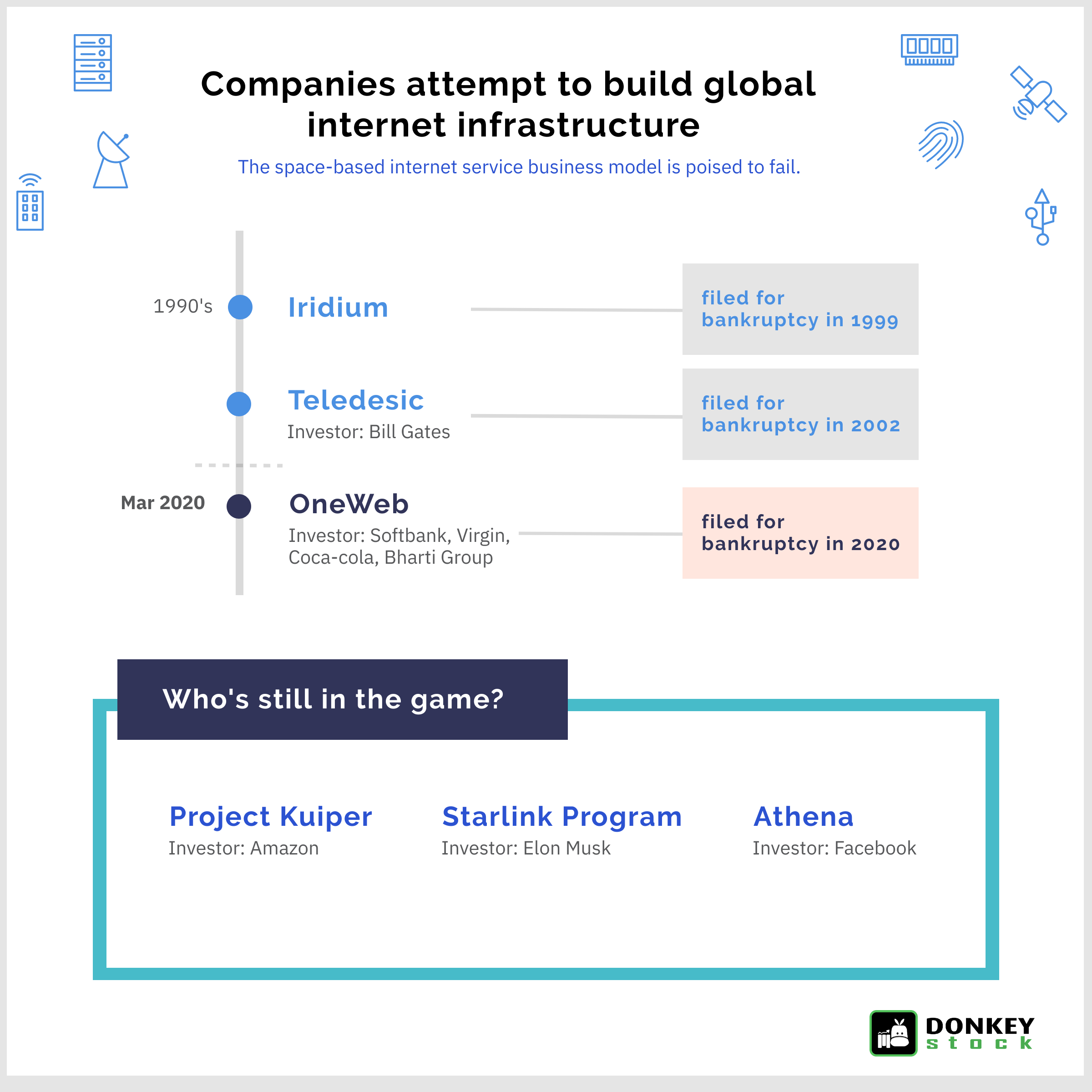Why a global internet infrastructure is doomed to fail?
DonkeyStock
Publish date: Tue, 14 Apr 2020, 09:03 PM

The OneWeb satellite system is a company with a goal to provide global satellite Internet broadband services. Initial services were scheduled to start in 2021. These satellites were designed to operate in circular orbits at approximately 1,200 km altitude transmitting and receiving in the Ku band.
OneWeb was one of a handful of companies including SpaceX and Amazon that are racing to build giant constellations of high-speed internet satellites. OneWeb planned to operate a fleet of at least 650 satellites to blanket the entire Earth with broadband service and had raised nearly $3.5 billion from large investors like the Virgin Group, Qualcomm, Airbus and SoftBank. SoftBank is said to have invested about $1.9 billion in OneWeb and owned nearly 40% of its shares
OneWeb suddenly declared bankruptcy on March 27, 2020 and has laid off 85% of its employees.
OneWeb is not the first company to fail in providing a global high speed internet. The main problem of this business model is that building and launching satellites is expensive, especially if you’re launching hundreds or thousands of them. In the 1990s, several companies attempted to connect the world with satellite constellations before going bankrupt.
· Teledesic, a company backed by Bill Gates, wanted to beam broadband internet from orbit, but only launched a single satellite before filing for bankruptcy protection in 2002.
· Iridium managed to launch a constellation of 66 satellites to deliver cell service across the entire Earth, but filed for bankruptcy in 1999 after it failed to attract enough customers to support its business.
Here’s some lesson learnt from this business model
1. Large constellations are very capital intensive, and investors have to be extremely patient because the returns aren’t going to be immediate.
2. Investors need to bear in mind that the Pareto principle (also known as the 80/20 rule) applies. This principle states that for many events, roughly 80% of the effects come from 20% of the causes. Same for a business, where 80% of the revenue is generated from 20% of its customers. Providing a global infrastructure enabling everyone to surf the web is a noble action but not everyone can afford to pay for this service and focusing on customers who have the ability to pay and willing to pay is the core essence for every business.
More articles on Stock Infographics
Created by DonkeyStock | Jun 05, 2024
Created by DonkeyStock | May 28, 2024
Higher offer price for MPHB Capital Bhd ?
Created by DonkeyStock | May 27, 2024
DC Healthcare Bhd has delivered a worsening financial result
Created by DonkeyStock | Jan 04, 2024
Property investing by these visionary Singapore-based companies
Created by DonkeyStock | Jan 03, 2024
Discover the factors behind this surge, the challenges faced by top cocoa producers, and the ripple effect on chocolate manufacturers
Created by DonkeyStock | Aug 15, 2023
Created by DonkeyStock | May 03, 2023
Companies listed on Bursa Malaysia with an outstanding quarter results for the month of Apr 2023.





















